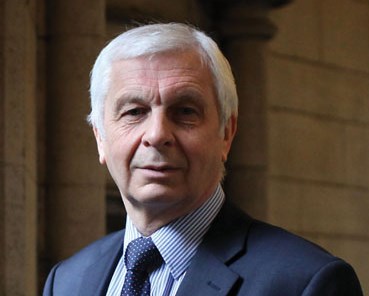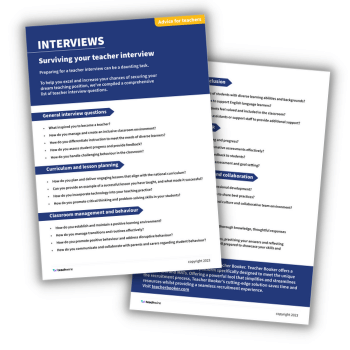Interviews Are Not A Game Show – Is Complex Teacher Recruitment Helping Us Make The Right Staffing Decisions?

Nobody would suggest that we don’t want to be rigorous in our selection, but do meaningless activities really help us get the right candidate?

- by Mick Waters

Someone who used to work for me asked whether I would mind reading through his letter of application for a new headship. I read it and such seemed his achievements and so great his ability that I commented that I wasn’t sure whether he was applying for a job as secretary general to the United Nations or director of the International Space Agency, rather than the headship of a large primary school. His letter was a work of art.
He was duly invited for interview; a two-day event which would gradually see individuals eliminated, with a final panel interview on the second day. On day one the candidates would ‘do’ an assessment centre, comprising a series of tasks, two of which were explained to enable prior preparation.
There was to be an assembly on the theme of inspiration, where the only equipment to be used was a CD player. The candidates were also to lead a 55-minute session teaching literacy through PHSE, with no use of the whiteboard. Now it was beginning to sound like one of those TV programmes where contestants dance, bake or make pottery. He duly went for the interview and was rejected after the first day. As well as the two tasks, the day comprised his observation of a lesson and giving the teacher feedback, being presented with a heap of mail to answer in one hour, conversations with children and parents, a written analysis of the perceived budget position, a group discussion with other candidates to simulate strategic decision making and an analysis of assessment data. The disappointed candidate told me that he had found the day bewildering.
Sadly, he left with a rather confused picture of the school and rationalised the situation to say that maybe it was the wrong sort of school for him. Perhaps it was.
This is but one example, but these stories are more and more prevalent as governors are encouraged to be ‘more professional in outlook’. The question is whether things need to be so complicated.
Most of us have experience of going to wedding receptions and seeing the basic celebration of the marriage augmented by chocolate fountains, bubbles, string quartets; all nice, but not essential. At any reception, some 10% of people are planning their own wedding, and so the new ideas spread. So it must be with governing bodies and heads. Courses, previous interviews, the reading of good practice in inspection reports – these all provide a growing repertoire of interview activities that mean that the process is growing bigger and bigger, with yet more tasks to complete.
Nobody would suggest that we don’t want to be rigorous in our selection, but do these activities really help us to make the right decision? My experience of some of them is that those appointing have rarely agreed beforehand what they are seeking and are swayed by peripheral matters.
Trending
Over the years, I have interviewed a great many people for senior roles. I have always found an extended conversation to be the best way of working out whether the candidate is the right one. Obviously, there are some teacher interview questions that are pre-planned to ensure fairness, but there is time for each candidate to engage in a deeper debate and offer more detail in response to questions that explore their initial answers.
In an extended conversation, it is hard for the candidate to keep up a facade or not reveal what they truly think. The examples they offer reveal a truer picture of their style and manner, the way they treat people, what they think learning is about and their ambitions. So often, it has been in the last ten minutes of an extensive interview that the candidate has revealed their real philosophy for education, their normal strategies for raising standards, their honest outlook towards children with difficult histories. Of course, a couple of reliable references also help.
Perhaps we have reached a point where schools can step back from the management speak and the processes that mirror the private sector, with its profit based motives, and work out ways to select the best people to do a difficult job in an essentially human place called a school.
By the way, my associate later found out that nobody was invited to the second day. The governors will probably have been impressed that they had the highest of standards and avoided a poor appointment. They still don’t have a headteacher.
Mick Waters is professor of education at Wolverhampton University.










